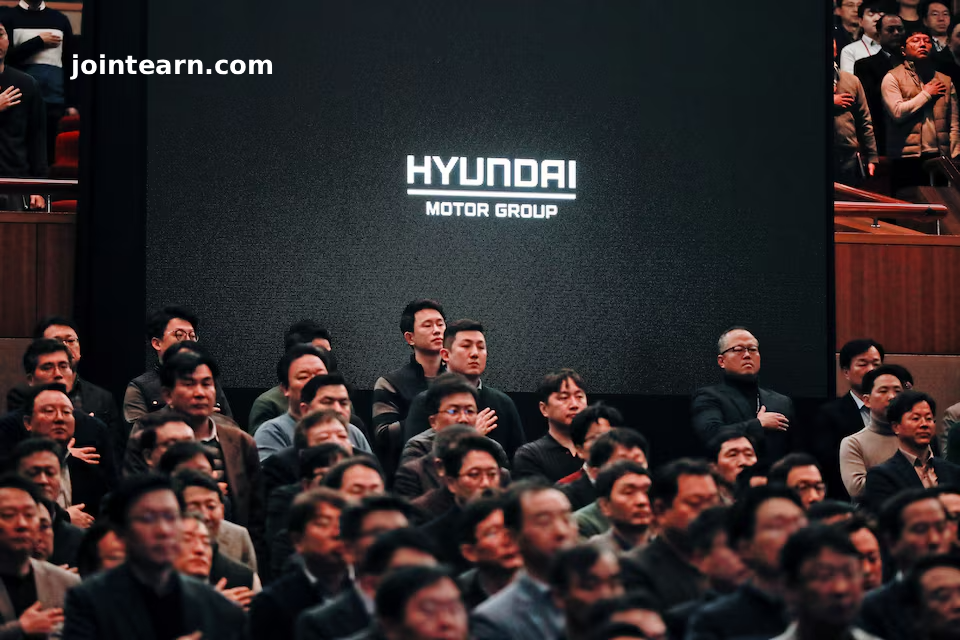
SEOUL, November 16, 2025 – Hyundai Motor Group revealed plans to invest 125.2 trillion won ($86.47 billion) in South Korea from 2026 to 2030, marking a significant increase from its previous investment of 89.1 trillion won during 2021–2025. The announcement follows the finalization of a U.S.-South Korea trade deal that reduces U.S. tariffs on South Korean automobiles from 25% to 15%.
President Lee Jae Myung Meets Hyundai Leadership
South Korean President Lee Jae Myung met with Hyundai Motor Group Chairman Euisun Chung and other business leaders on Sunday to discuss domestic investment priorities and strategies for maintaining competitiveness amid global trade shifts. The trade deal also includes a commitment by South Korea to invest $350 billion in strategic U.S. sectors, prompting discussions on balancing overseas commitments with domestic growth.
Chairman Chung emphasized:
“We are well aware of concerns about exports declining and domestic production shrinking due to U.S. tariffs of 15%.”
He added that Hyundai plans to diversify export markets, increase production at domestic factories, and more than double auto exports by 2030, particularly through new electric vehicle (EV) factories. The group also intends to support domestic auto parts manufacturers affected by U.S. tariffs.
Strategic Allocation of Domestic Investments
Hyundai’s domestic investment plan spans multiple sectors:
- AI and future technologies: 50.5 trillion won ($35 billion)
- Research and development (R&D): 48.4 trillion won
- Production facility optimization and infrastructure, including the construction of a skyscraper: 36.2 trillion won
The investments aim to strengthen Hyundai’s technology leadership, accelerate the company’s transition to electric and autonomous vehicles, and ensure sustainable domestic manufacturing growth amid evolving global trade dynamics.
Context: U.S.-South Korea Trade Deal and Automotive Sector
The trade agreement reduces U.S. tariffs on South Korean vehicles, easing export pressures while creating opportunities for domestic investment. Analysts note that Hyundai’s domestic strategy aligns with broader government goals to safeguard South Korea’s industrial base, stimulate job creation, and enhance competitiveness in the global EV and automotive sectors.
By committing a substantial portion of its investment to AI, R&D, and production innovation, Hyundai is positioning itself to lead in next-generation mobility technologies, ensuring that domestic factories remain a core part of its long-term global strategy.


Leave a Reply